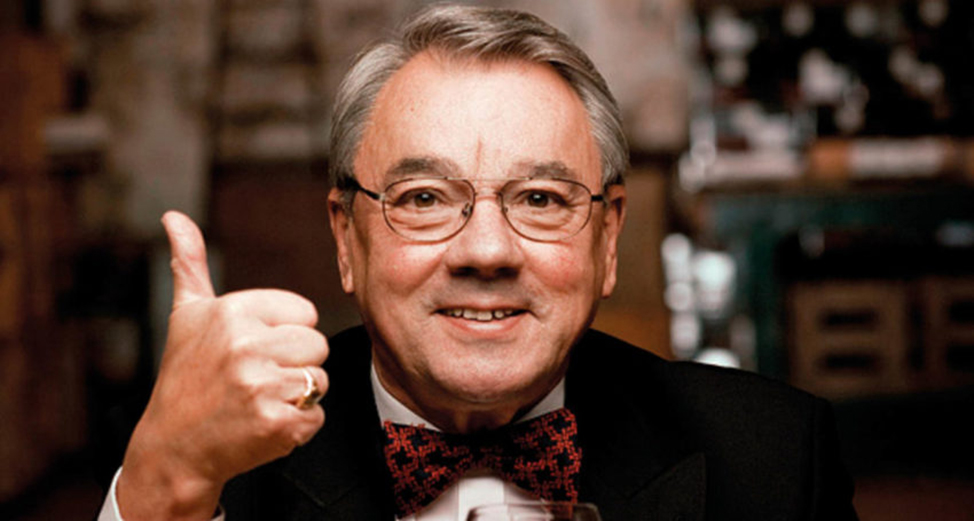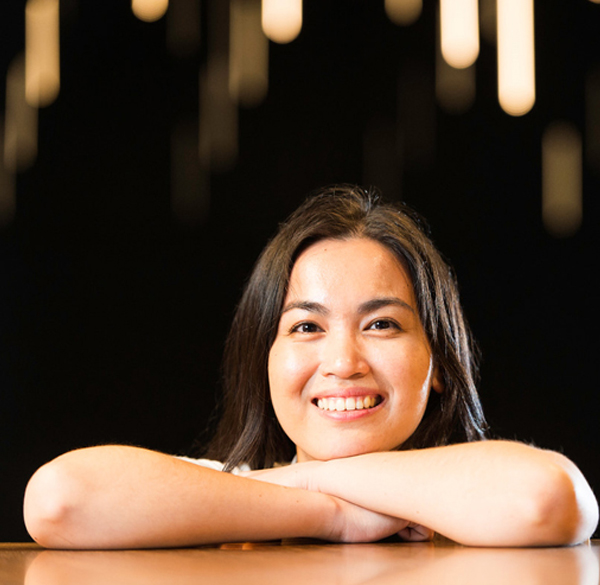The Wolf Blass Foundation scholarship is designed to support the Australian wine industry to be more successful through better marketing and innovative practices. Thanks to recent research, wine producers now have a clearer insight into what retailers are looking for when allocating precious shelf space.

In 1994, on the occasion of his 60th birthday, Wolf Blass AM BVK announced his intention to establish the Wolf Blass Foundation Inc (WBF) for the benefit of the Australian wine industry with an initial contribution of $A1 million. By 2022, aged 87, Wolf has distributed well over $1 million to numerous activities, both one-off and ongoing – and through a combination of investments and additional personal contributions, the Foundation assets now stand at over $11 million.
In recognition of his distinguished contribution to public service, Wolf was awarded an honorary doctorate from the University of South Australia in 2014.
In recent years, Wolf redeveloped an old bank building in Hahndorf into a Gallery Museum and wine bar, providing unique educational insights for the public. As part of the project, the heritage-listed Hahndorf School (1854) has been preserved and now houses a cooperage display. The scope of this and other activities funded by the Foundation can be found online at ahwinebar.com.au
In 2017, the WBF commenced a 10-year scholarship commitment with a total contribution of $350,000 to support Masters by Research students at the University of South Australia’s Ehrenberg-Bass Institute for Marketing Science to conduct research in wine marketing and innovation. The purpose is to support the Australian wine industry to be more successful through better marketing and innovative practices.
In a partnership with WBM – Australia’s Wine Business Magazine and the University of South Australia, summaries of the completed research theses will be shared with readers of WBM. Here is the first, published in their July/August 2022 issue.
Authors
Masters Student: Anne-Marie Azzuro
Supervisors: Professor Larry Lockshin, Professor Byron Sharp, Dr Cathy Nguyen and Professor Svetlana Bogomolova
Research need
We know that Australia has a duopoly in the retail liquor market. Retailers have more power in negotiating and have reduced shelf space for branded wines in favour of their higher margin private labelled wines, even if these are not identified as such. It is increasingly more challenging for small and medium-sized enterprise (SME) wine brands to get listed and even more challenging to get listed with favourable terms in major retail wine stores.
Regional wine associations often suggest the solution is to invest further in marketing activities that drive regional awareness which will then translate into increased visitation and sales via cellar door as well as building overall awareness of the wine region. An SME winery might have to sacrifice the investing of marketing resources into building their own brand amongst retail consumers to help build their wine region brand. Consequently, wine producers get caught in this predicament of deciding whether to invest in building a well-known region or in building a better-known brand.
Along with this issue is the question of how SME wineries should approach retailers to gain a listing.
This research aimed to help wine producers understand better how wine retailers across corporate, independent and fine wine stores manage their category so brands can ultimately be more competitive in those channels. Specifically, the research focused on the role of a brand from a retailer’s perspective to guide wine producers about how best to prioritise their marketing resources.
What was done
Expert interviews were conducted with 32 buyers for wine retailers to understand the importance of a brand in wine retailer decision-making. The buyers were sourced from different wine retail companies with roughly one-third coming from fine wine retailers, just under half representing independent retailers and one-quarter representing the major corporate alcohol chains. The data was primarily collected in South Australia, but just over one-quarter of the interviews were conducted in NSW.
The interviews focused on category management and the stocking, replacement and delisting processes used by these retailers. The data was analysed to document the following:
What was discovered
Expert interviews were conducted with 32 buyers for wine retailers to understand the importance of a brand in wine retailer decision-making. The buyers were sourced from different wine retail companies with roughly one-third coming from fine wine retailers, just under half representing independent retailers and one-quarter representing the major corporate alcohol chains. The data was primarily collected in South Australia, but just over one-quarter of the interviews were conducted in NSW.
The managerial implications
Investing in becoming a well-known brand is a key success retail factor for all wine brands but this is even more critical for brands from lesser-known wine regions. This is due to wine retailers of all types claiming that well-known brands attract all types of consumers. Well-known brands ultimately sell themselves, which is what a retailer is looking for. Well-known brands in their respective style are rarely delisted because of their reputation. Wine producers (small, large, local, new and existing) should focus on investing in their brand’s identity. Given the trend towards stocking more local wines, even small and newer brands should work on developing brand recognition at a local level particularly when working with the independents and fine wine retailers which tend to stock more local wines.
The research helped generate a summary diagram of typical wine retail stocking, delisting and replacement processes. This provides producers with a guide for retailer decision-making.
This figure demonstrates the criteria wine retailers follow in assessing wines for their ranges. Wine brands can use this figure to plan their strategy before they approach a retailer for listing. Brands should tailor their sales pitch to meet particular retailers’ demands by playing to their brand’s strengths.

Want to get involved in our research agenda?
Should you wish to learn more about the research that the Wolf Blass Foundation is generously supporting at the University of South Australia and get involved in future research please contact Dr Justin Cohen at justin.cohen@unisa.edu.au.
100% of your gift will go directly to support the UniSA Scholarship Fund - there are no administration fees, no overheads and no hidden costs
You can give someone else a boost towards their future. Support our future students and help us provide as many scholarships, grants and prizes as possible.
